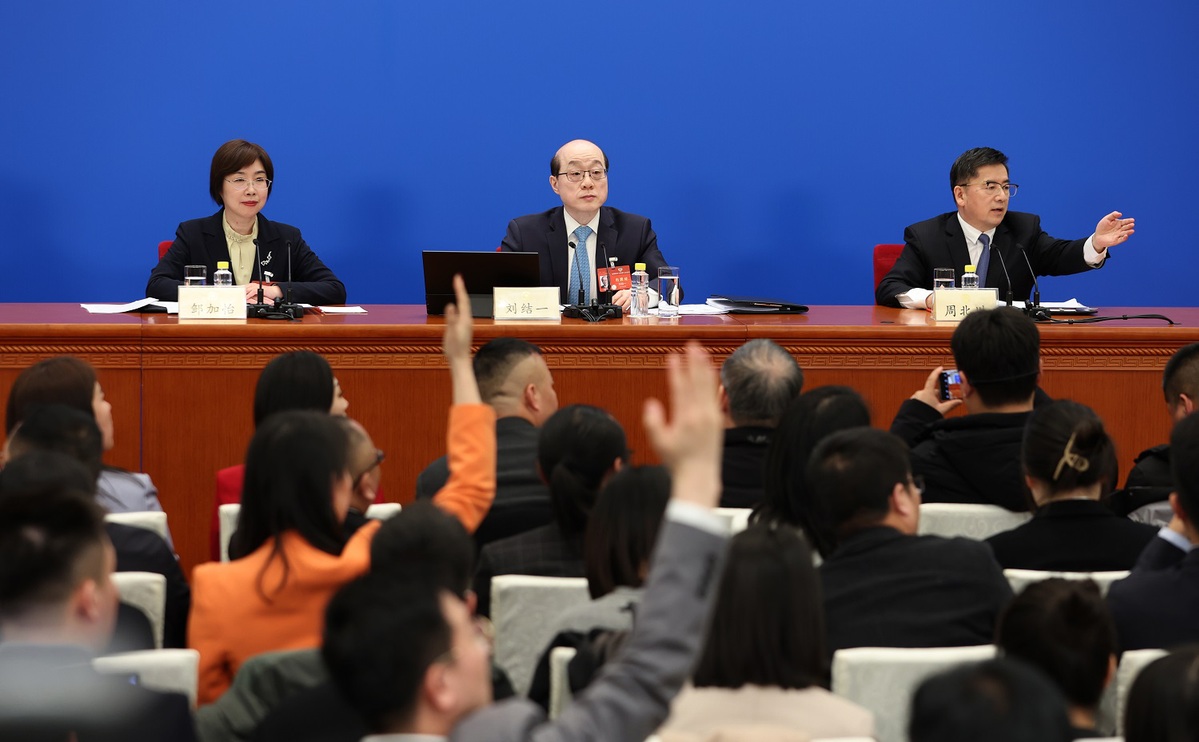
Journalists raise hands to ask questions at a news conference of the second session of the 14th National Committee of the Chinese People's Political Consultative Conference at the Great Hall of the People in Beijing, March 3, 2024. [Photo by Zou Hong/chinadaily.com.cn]
National political advisers will continue to focus on advancing China's modernization, providing suggestions and building consensus to harness wisdom and strength in achieving the country's development goals.
Liu Jieyi, spokesman for the second session of the 14th National Committee of the Chinese People's Political Consultative Conference, the nation's top political advisory body, outlined these goals at a news conference on Sunday, one day ahead of the annual event.
This year marks the 75th anniversary of the founding of the People's Republic of China and also the 75th anniversary of the CPPCC. "Throughout its 75-year history, the CPPCC has played a pivotal role in various historical periods," Liu said.
Over the past 12 months, the 14th CPPCC National Committee, which started its five-year term last year, has fulfilled its role as a consultative body, conducting thorough investigations and consultations while imposing democratic oversight on central tasks and making fresh contributions to the development of the Party and the country, he said.
The CPPCC National Committee has conducted 94 consultations for advisers and officials to exchange ideas. Many of the suggestions were translated into policies and measures, which helped propel economic and social development, Liu said.
These meetings focused on various issues including building a new development paradigm, accelerating the implementation of the innovation-driven development strategy, optimizing the development environment for private enterprises, enhancing the influence of Chinese culture and improving the policy system for supporting childbirth, the spokesman said.
The CPPCC National Committee has increased the frequency of consultations in order to fully reflect the opinions and suggestions of the public, Liu said.
The top political advisory body also carried out 138 activities to strengthen the support role of research and investigation for political consultation, he said.
It has also established a system for thematic research, with the vice-chairpersons of the CPPCC National Committee leading advisers from various backgrounds to conduct in-depth research on crucial topics, including promoting the development of the Yangtze River Economic Belt and advancing the governance of new pollutants, Liu said.
Political advisers were encouraged to conduct surveys at the grassroots level and among the public, he said. "They have directly delved into communities and rural areas, listening to real voices and observing real situations from residents and farmers," Liu said.
Efforts have been made to transform the results of consultation and advice into effective contributions to serve national governance, he added.









